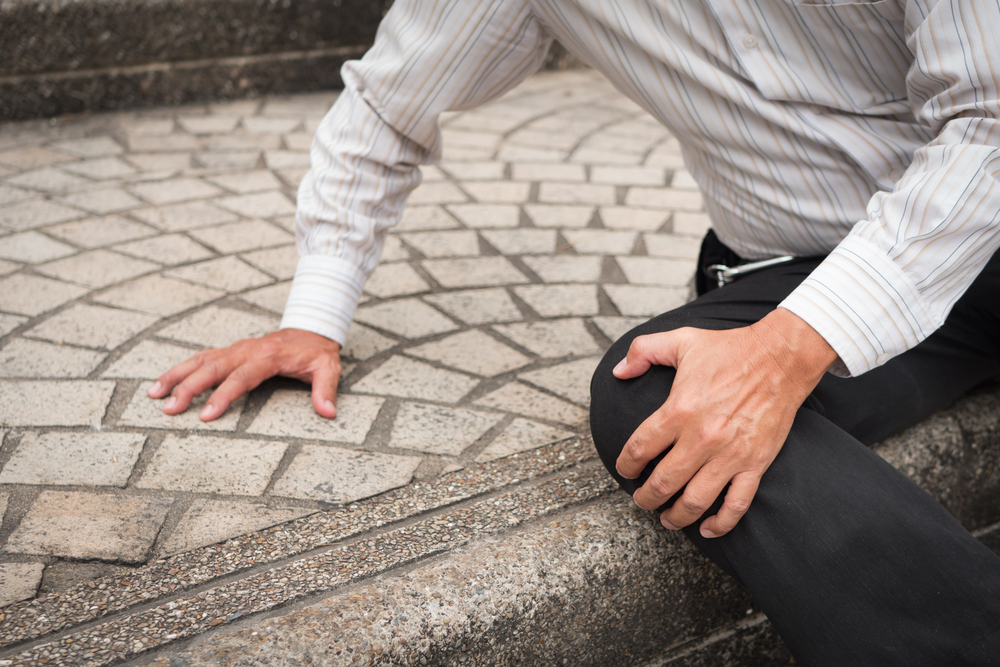 Falls are the leading cause of emergency room visits in the United States, with slip-and-fall accidents accounting for roughly 12%, or 1 million of those falls every year. These falls can occur due to a wide variety of reasons—many of which are preventable. What are the most common causes of slip-and-fall accidents, and how do those causes impact liability in a personal injury case? Keep reading to learn more.
Falls are the leading cause of emergency room visits in the United States, with slip-and-fall accidents accounting for roughly 12%, or 1 million of those falls every year. These falls can occur due to a wide variety of reasons—many of which are preventable. What are the most common causes of slip-and-fall accidents, and how do those causes impact liability in a personal injury case? Keep reading to learn more.
Wet or Uneven Surfaces
The most common cause of these accidents is wet or uneven surfaces. In the United States, these conditions account for more than half of all slip-and-fall accidents. Examples that would fall under this category include:
These kinds of situations can arise just about anywhere, but when they arise on another party’s property and result in your injury, that party could be held liable. Owners are expected to maintain their properties—and that applies whether the owner is an individual or a company, and whether the property is residential or commercial. If you slip, fall, and are injured as the result of a surface not being properly maintained, this can place the liability for your injuries on the property owner’s shoulders.
Weather Conditions
Nobody can control the weather. However, just because the weather contributed to your fall, doesn’t mean that there will be zero liability on anybody else. For example, let’s say that you slipped and fell while walking through a slick parking lot after a rainstorm. If the parking lot was maintained as it should be, the property owner is unlikely to be held liable; people should reasonably expect some surfaces to be slippery after it rains, and should take appropriate precautions.
On the other hand, if you slip and fall on a sidewalk that’s coated in ice, because the property owner failed to remove it as they should, then liability still falls on the property owner. Even though they cannot control that it snowed or that temperatures fell enough to cause the moisture on the sidewalk to freeze, it is still their responsibility to remove snow and ice from the walkways on their property. Any injuries that occur if they fail to do this can lead to a viable personal injury lawsuit.
Improper Training
Many slip-and-fall accidents occur in the workplace. Again, liability for these accidents is often a gray area. While employees should be taking reasonable precautions and utilizing company safety measures to prevent injuries, doing so is much more difficult if they do not receive proper training or have the proper tools and equipment.
If a worker slips and falls due to their own negligence or behavior, the company won’t be held liable in most cases. However, if the fall occurs because the employee was not trained on how to properly climb the construction scaffolding, or because they didn’t have proper nonslip footwear, for example, the company could be held liable for not taking appropriate steps to protect their workers from injury.
Nursing Home Neglect
Senior citizens are much more likely to experience slip-and-fall accidents and, even more concerning, are far more likely to be injured from seemingly minor falls. According to the CDC, one in three Americans over 65 falls every year. If a fall occurs in a nursing home, the causes of that fall will be carefully examined. For example, was the resident receiving the proper support for their mobility level? If the staff knows that a patient cannot walk well unassisted, that patient should always have a walker or cane, or they may even require a staff member to help them move from one place to another. If the correct support and care is not received, and results in a fall-related injury, the nursing home may be liable for neglect.
Determining Liability in Your Case
Liability in slip-and-fall accidents can often be difficult to determine, as so many different factors can contribute to your fall. If you believe that your injuries were the result of someone else’s actions or negligence, contact The Harr Law Firm today. We’ll examine the details of your case to determine where the liability falls, and whether or not you have enough evidence to support a personal injury claim. Call now to schedule an initial consultation.